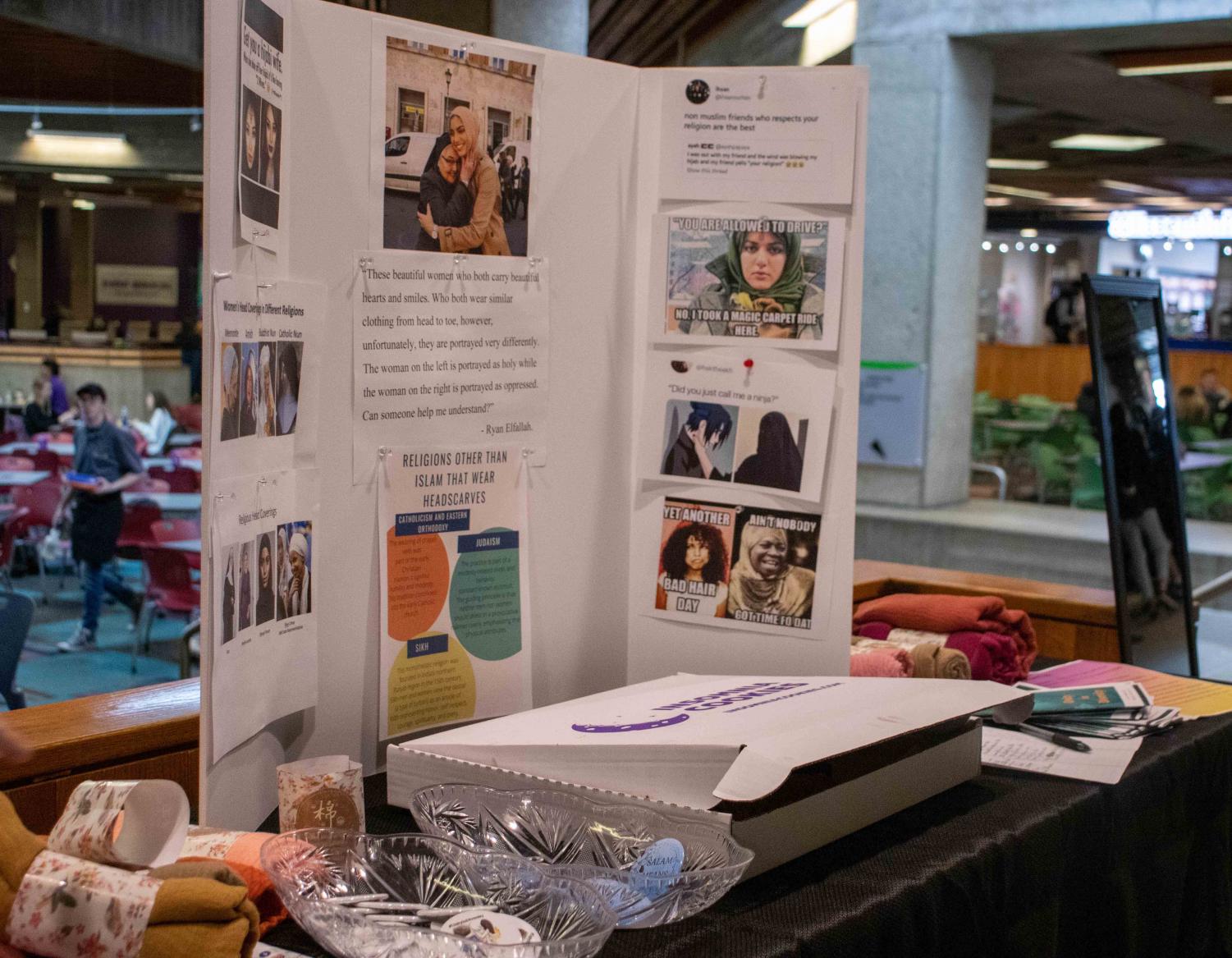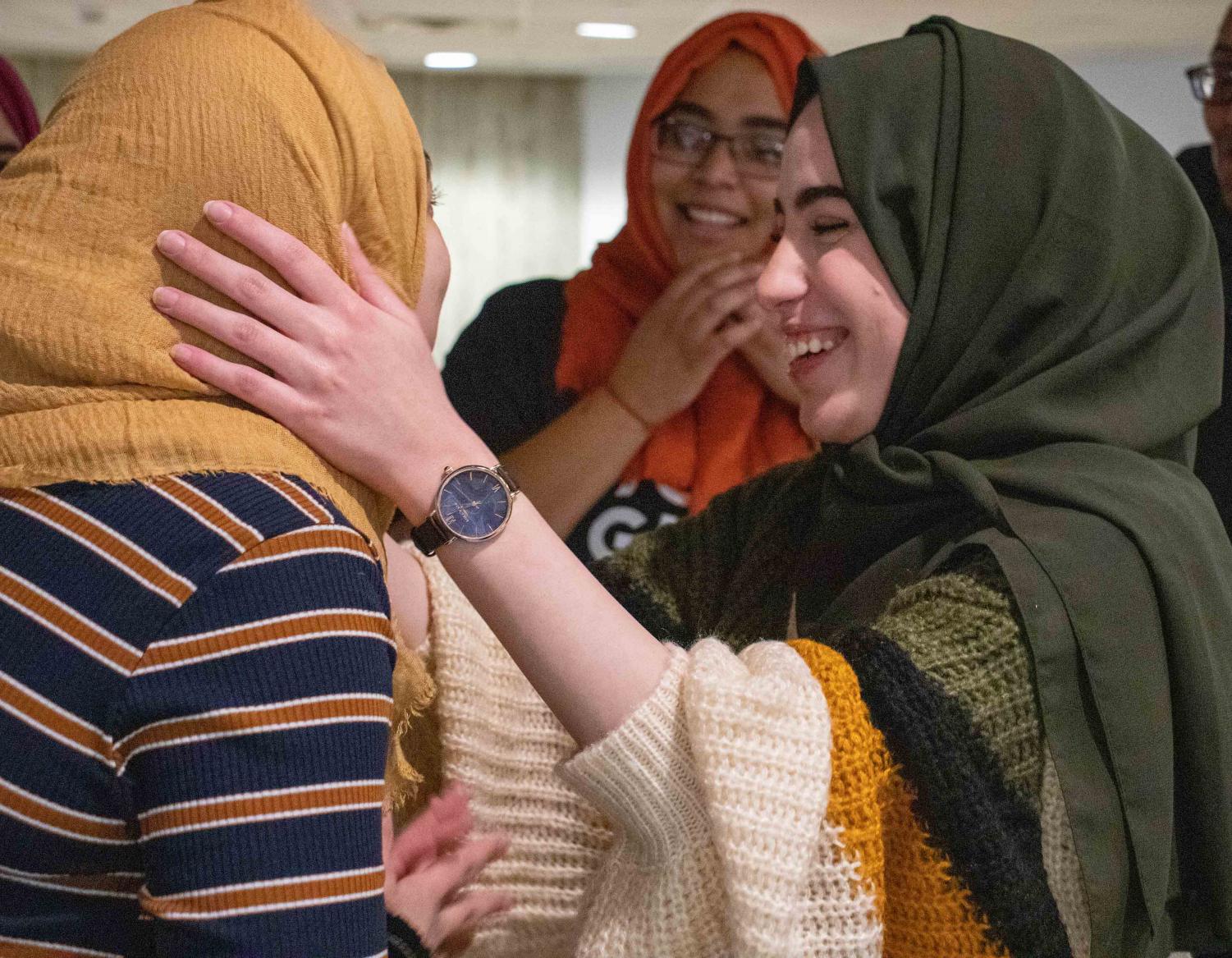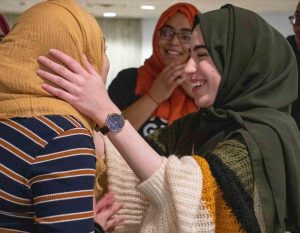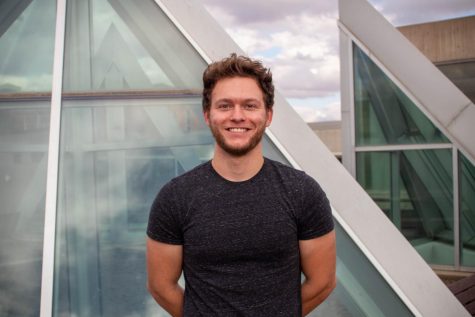UNI celebrates World Hijab Day
Feb 6, 2020
The UNI Muslim Students Association celebrated World Hijab Day on Monday, Feb. 3 by encouraging people of all religions and backgrounds to wear a hijab for the day. Members of the organization set up a booth in Maucker Union to raise awareness and give students hijabs to wear.
World Hijab Day is an annual event founded in 2013 by Nazma Khan. The event takes place on Feb. 1 in 140 countries. It is seen as an expression of solidarity and support for religious freedom.
“The main takeaway is education and raising awareness of the hijab and to always remember if you see a Muslim female with her hijab on, just know that she has so much more to her experience than the hijab,” said Muslim Students Association President Luma Yasin. “It’s literally a part of who she is and she is proud of it, as she is representing her religion.”
The Hijab is a veil worn by some Muslim women in countries where the primary religion is Islam. The type worn most commonly in the west covers the head and neck while leaving the face clear.
According to Yasin, the hijab serves different purposes for different people, including a way to demonstrate their religious devotion and freedom of expression.
“The primary motivation for wearing the hijab is to obey God as it is a religious commandment, it’s something God has directed us to do,” said Yasin. “Moreover, it serves as a purpose of modesty and covering the beauty of women. However, Muslim females who wear the hijab also develop a personal connection, as many see it as a kind of empowerment. Just as a woman has the right to show her beauty, she should also have the right to cover it.”
Through this event, the Muslim Students Association aimed to address misconceptions about the hijab and about Muslim culture in general, a discrimination Yasin explained is still prevalent in contemporary society.
“Muslim women know that the hijab is not a barrier,” said Yasin. “Unfortunately, the rest of the world does not, and that is due to the negative media coverage about Muslim communities and biased beliefs and stereotypes. It is also easy to stay thinking that women who wear hijabs are oppressed when you don’t know anyone personally who owns one.”
Despite this, Yasin states UNI has shown great support for the event and that she has had a great experience at UNI. She has faced no direct discrimination from anyone on campus. Yasin said that everyone she has dealt with has always been willing to learn more about the hijab and encourage diversity.
“I am so thankful for all the faculty and staff who I have dealt with, as they were always so welcoming,” Yasin said. “It’s really great to see other people appreciate the hijab and try it on and ask about it.”












